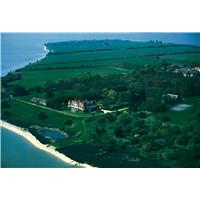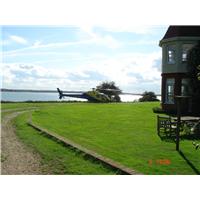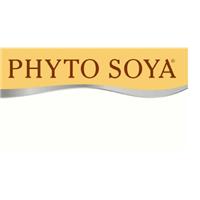Autumn is nearly upon as and with it comes the dreaded flu and cold season. An estimated three in 20 people will have flu by the New Year. Most at risk are the elderly and those with weak or depressed immune systems.
Whilst a flu jab is an advisable preventative measure there is a lot more we can do to protect and boost our bodys immune systems. For example, by eating superfoods and taking supplements known as antioxidants, that help protect our body from infections. These supernutrients not only have the potential to help you be healthier and look younger for longer but will give you the best possible chance of fighting off viral infections such as colds and flu this winter.
In Japan, for example, doctors are combating heart disease by prescribing CoEnzyme Q10 (CoQ10), a fat-soluble vitamin-like substance produced by our own bodies. This substance is an essential component of the mitochondria, the energy producing unit of our cells, where it helps produce the bodys fuel. The role of CoQ10 is similar to that of the sparkplug in a car engine.
Low levels of CoQ10 have been linked to several diseases, in particular congestive heart failure. Ageing humans have been found to have 57% less on average compared to young adults. But there is increasing evidence that it can help prevent and even reverse several diseases of ageing heart failure, gum disease, muscular dystrophy, diabetes and chronic fatigue. In healthy individuals its effectiveness can be experienced in the gym where it can assist in cardio-vascular endurance.
Antioxidants help the body defend itself against attack from free radicals, the unstable molecular structures, caused by pollution, stress, smoking and drinking to excess, that damage cells and which scientists believe are the trigger for cell mutations that cause cancer and other ageing diseases.
Nutritionist Sally Beare, author of The Live-Longer Diet (www.piatkus.co.uk) says: In order to stave off degenerative diseases and enjoy optimum health, we have to get the full range of nutrients. These include at lest seven to twenty minerals, thirteen vitamins, eleven essential amino acids and two essential fatty acids (essential meaning that they are essential for health and cannot be made by the body). At the absolute minimum, we should eat at least five portions of fresh fruits and vegetables every day, and preferably ten. Yet most Western diets include far less than this, and the UK Food Standards Agency found that only 36 per cent of people in the UK are even aware of the recommendation.
Ideally, antioxidants should be consumed as part of a well-balanced diet, but since many processed foods are deficient, dietary supplements should be considered. Anyone who is pregnant or taking pharmaceutical drugs for a serious illness should consult their doctor before taking supplements as some can interact with medication.
Included in the list of supernutrients are foods that release energy slowly into the blood stream, those with a low Glycemic Index, that keep energy levels constant and prevent tiredness and the onset of diabetes. Oats are one of the best sources and it also lowers cholesterol and blood pressure. Other superfoods to include in your diet are eggs, one of the best sources of protein; green tea to protect against heart disease and cancer; nuts such as brazils that contain selenium which protects against cancer and improves thyroid function and walnuts for a healthy heart and olive oil and soya to reduce cholesterol.
Eating oily fish regularly helps protect the brain and has the added bonus of giving us beautiful skin. Mackerel, herrings, tuna, salmon, sardines and anchovies all contain omega-3 essential fatty acids (EFAs) as do flax seeds (linseed) and flaxseed oil.
New York dermatologist, Dr Nicholas Perricone (www.www.nvperriconemd.co.uk) describes DMAE, a substance found in abundance in wild Alaskan salmon, as “the magic bullet” for skin. In his book, The Perricone Promise, he explains how you can look 10 years younger in 28 days by eating supernutrients, including salmon and DMAE and have a healthier brain and slimmer body at the same time. DMAE is also a building-block of the brain neuro-transmitter acetylcholine which declines with age and causes a deterioration in muscle-tone as well as brain function leading to Alzheimers.
He says: Looking good and having a positive body image is not vanity; its your road to a long, healthy and happy life.
The most important dietary antioxidants are found in the more colourful varieties of fruits and vegetables such as:
Red/Orange: Tomatoes, strawberries, oranges, carrots, sweet potato, pumpkin, red and orange peppers, and salmon are rich in vitamins A, C and E.
Green: Cabbage, spinach, avocado, kiwi fruit and peas are rich in vitamin A.
Yelow: Lemons, melons, mangoes, yellow peppers and grapefruit are all rich sources of Vitamins A and C.
Purple: Blueberries, blackcurrants, red cabbage and beetroot are excellent sources of vitamins A, C and E.
White: Garlic, onions, cauliflower and walnuts are rich in vitamins A, C and E.






